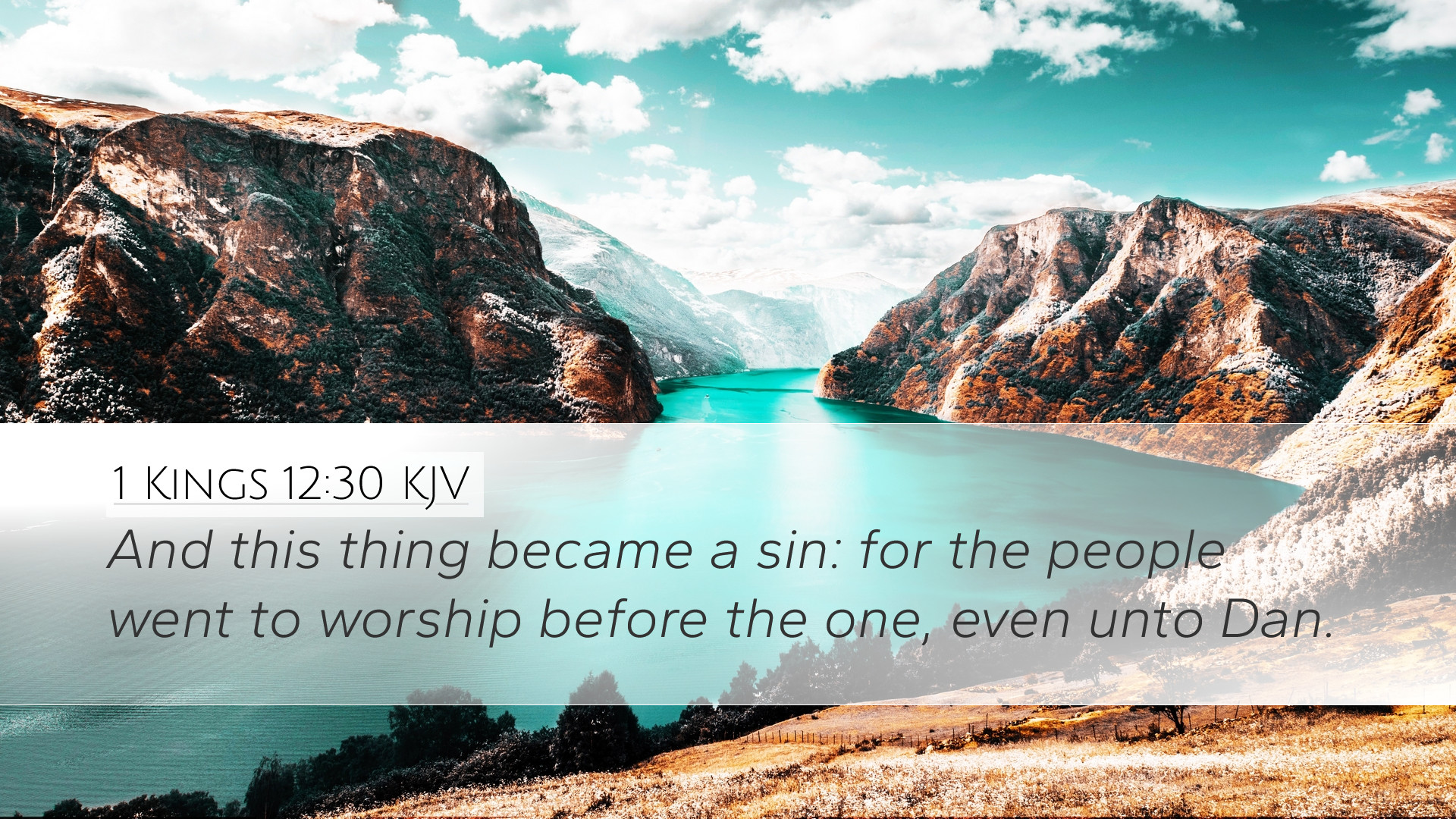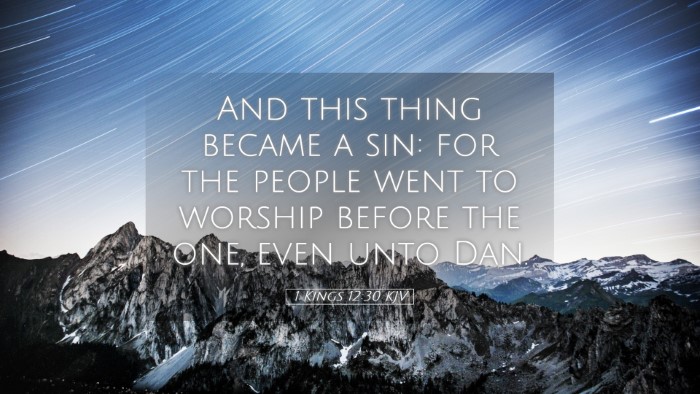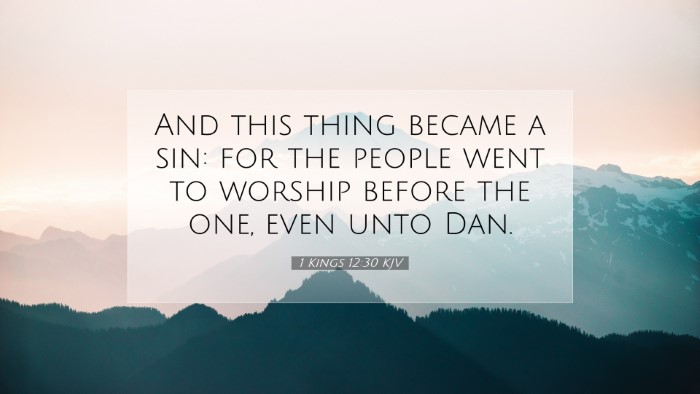Commentary on 1 Kings 12:30
Bible Verse: "And this thing became a sin: for the people went to worship before the one, even unto Dan."
Contextual Overview
The events surrounding 1 Kings 12 revolve around the division of the United Kingdom of Israel. After the death of Solomon, Rehoboam ascends to the throne, but his harsh ruling leads to the secession of ten tribes, forming the Northern Kingdom under Jeroboam. The establishment of altars at Dan and Bethel is a significant religious shift, where Jeroboam creates a system that deviates from the worship commanded by God.
Theological Implications
This verse encapsulates the profound consequences of idolatry and the shift from proper worship to a corrupted form of religion. The act of setting up golden calves symbolizes a departure from true worship and reflects the heart of Israel's spiritual decline.
Insights from Public Domain Commentaries
Matthew Henry's Commentary
Matthew Henry emphasizes that this act of worshipping the calves constitutes a significant departure from God's directives. He notes:
- "The sin was not merely in making the calves, but in the adoration of them, which robbed the true God of His glory."
- "Jeroboam's intention was to prevent his subjects from returning to Jerusalem, which was the rightful place of worship according to the Law."
Henry reflects on the broader implications of this sin, suggesting that it led to a pattern of apostasy affecting subsequent generations. He warns that such changes in worship can become normative, resulting in community-wide acceptance of deviation from God's prescribed ways.
Albert Barnes' Notes on the Bible
Albert Barnes provides a detailed narrative of the political motivations driving Jeroboam’s decisions. He articulates several key points:
- "The establishment of the golden calf was politically motivated to consolidate power and minimize the influence of Jerusalem."
- "This leading into sin reveals a heart problem: Jeroboam's lack of trust in God's sovereignty."
Barnes identifies the theological implications of the people’s choice to worship the calves, indicating it reflects a deeper spiritual rebellion against the commands of the Lord. He particularly emphasizes the dire consequences of leading others into sin, noting:
- "Leadership carries the burden of responsibility for the spiritual well-being of followers."
Adam Clarke's Commentary
Adam Clarke offers a scholarly approach, assessing this historical context and its implications. He notes:
- "Worshipping the calf at Dan initiated a systematic deviation from the worship as ordained in the Torah."
- "This deviation set Israel on a path to continuous rebellion against God, which was evident in their subsequent history."
Clarke also highlights that the choice of Dan, a city on the northern border, symbolizes a geographical and spiritual separation from the true worship established in Jerusalem. He points out the ironic nature of this choice, as it suggests a conscious rejection of the true worship of Yahweh.
Practical Applications
The lessons drawn from 1 Kings 12:30 extend beyond historical significance; they present valuable insights for modern readers:
- Importance of True Worship: The call to worship only according to God's commands remains relevant today. Believers must guard against practices that deviate from scripture.
- Leadership Responsibility: Church leaders must be diligent in directing their congregations towards God’s truth rather than allowing personal or political motives to influence worship practices.
- Awareness of Idolatry: Identifying modern forms of idolatry—whether cultural, social, or economic—is critical. Committing to worship God alone is essential in a world rife with distractions.
Conclusion
1 Kings 12:30 serves as a poignant reminder of the consequences of straying from authentic worship. Through the insights of esteemed commentators like Matthew Henry, Albert Barnes, and Adam Clarke, readers are encouraged to reflect on the serious nature of worship and the importance of fidelity to God’s commandments. As we consider this passage, may we, in our personal and communal lives, endeavor to align our worship with the truth of Scripture, always seeking to honor the Lord in all that we do.


